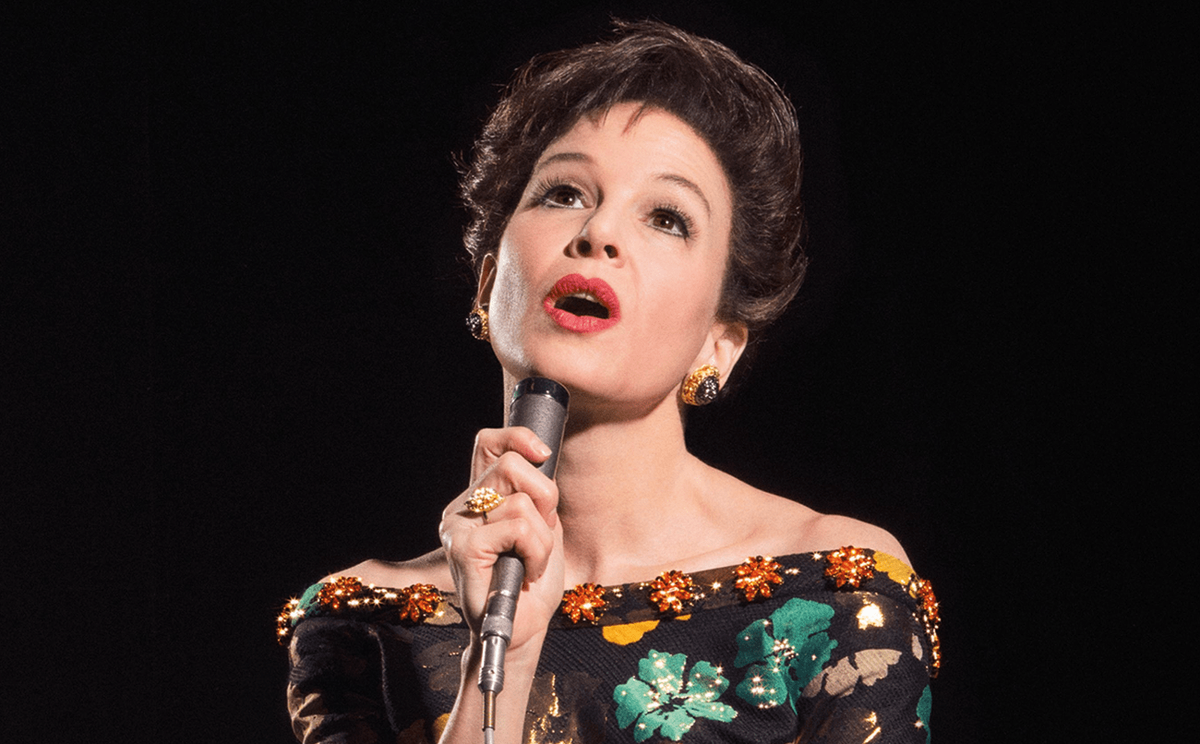12DOVE Verdict
Zellweger knocks it out of the park, lighting up this punchy and moving late-life biopic with big-hearted, big-voiced panache.
Why you can trust 12DOVE
Forget your troubles, come on, get happy, because the Renée-ssance starts here. The divine Miss Z makes a major comeback, starring as the fragile, pill- and booze-addicted Judy Garland in this poignant, deep-digging biopic.
In 1968 we find America’s songbird exhausted, broke and homeless, her only offer a London nightclub contract (“The English are insane”) to fund an LA house that will reunite her with her kids. Trotting busily from a sleepless hotel bed to backstage chaos, and never far from a bottle, it’s a compelling, often dryly witty portrait of a middle-aged icon on the skids. But director Rupert Goold (best known for 2015’s sociopath thriller True Story) layers it nimbly with Garland’s origin story, in snappy colour-saturated flashbacks to the punishing shoot for 1939’s The Wizard Of Oz that sealed her fate.
MGM’s best money-maker was an abused teen, on a ruthlessly enforced regime of crash-dieting, pill-popping and relentless work. Faced with rebellion by young Judy (a chirpy Darci Shaw), studio mogul Louis B Mayer bullies her mercilessly, MeToo fashion: “You’re a fat-ankled, snaggle-toothed rube from Grand Rapids.” Studded with stinging memories and chewy themes (such as the unresolvable tug-of-war between family and fame), Tom Edge’s script, adapted from Peter Quilter’s hit stage play End Of The Rainbow, is needle-sharp and mostly free of showbiz schmaltz. Garland’s hideous stage fright and famous unreliability keeps things nicely tense, making Zellweger’s first-night transformation from droopy drunk to stage-storming trouper roaring out ‘By Myself’ an absolute belter.
Goold’s camera sticks second-skin close to Zellweger throughout, generating a nervy intimacy as it slides through pitch-perfect ’60s interiors. For a small movie, Judy glitters with confidence, especially in the stage performances, shot mercilessly close and with few cuts, like a concert film. But Goold’s fierce concentration on his leading lady means that fine supporting performances (Rufus Sewell’s weary ex-husband Sid Luft or Finn Wittrock’s starstruck boyfriend, subject of a hopeful romance) get little legroom. The exception is a cosy sub-plot in which gay fans Stan and Dan have the encounter of their dreams.
Like a rather livelier Jackie (2016), the film is a transfixed but unflinching up-close look at a legend. Zellweger carries it off magnificently, her trademark combo of wit and vulnerability fitting Garland as expertly as her silk stage-suits. In an extraordinary, vanity-free performance (Garland resembled a haggard but perky pixie by this stage), she pivots from heartsick, long-distance mothering to full-wattage showbiz queen in an instant. She has Garland’s twitchy mannerisms and resilient wisecracking down pat, but this is a masterly interpretation rather than an impersonation. As is her singing voice, no longer the breathy coo of Chicago but a smokey, surprisingly powerful instrument that wraps itself around the viewer. When she goes over the rainbow, you’re going with her.
Kate is a freelance film journalist and critic. Her bylines have appeared online and in print for GamesRadar, Total Film, the BFI, Sight & Sounds, and WithGuitars.com.

